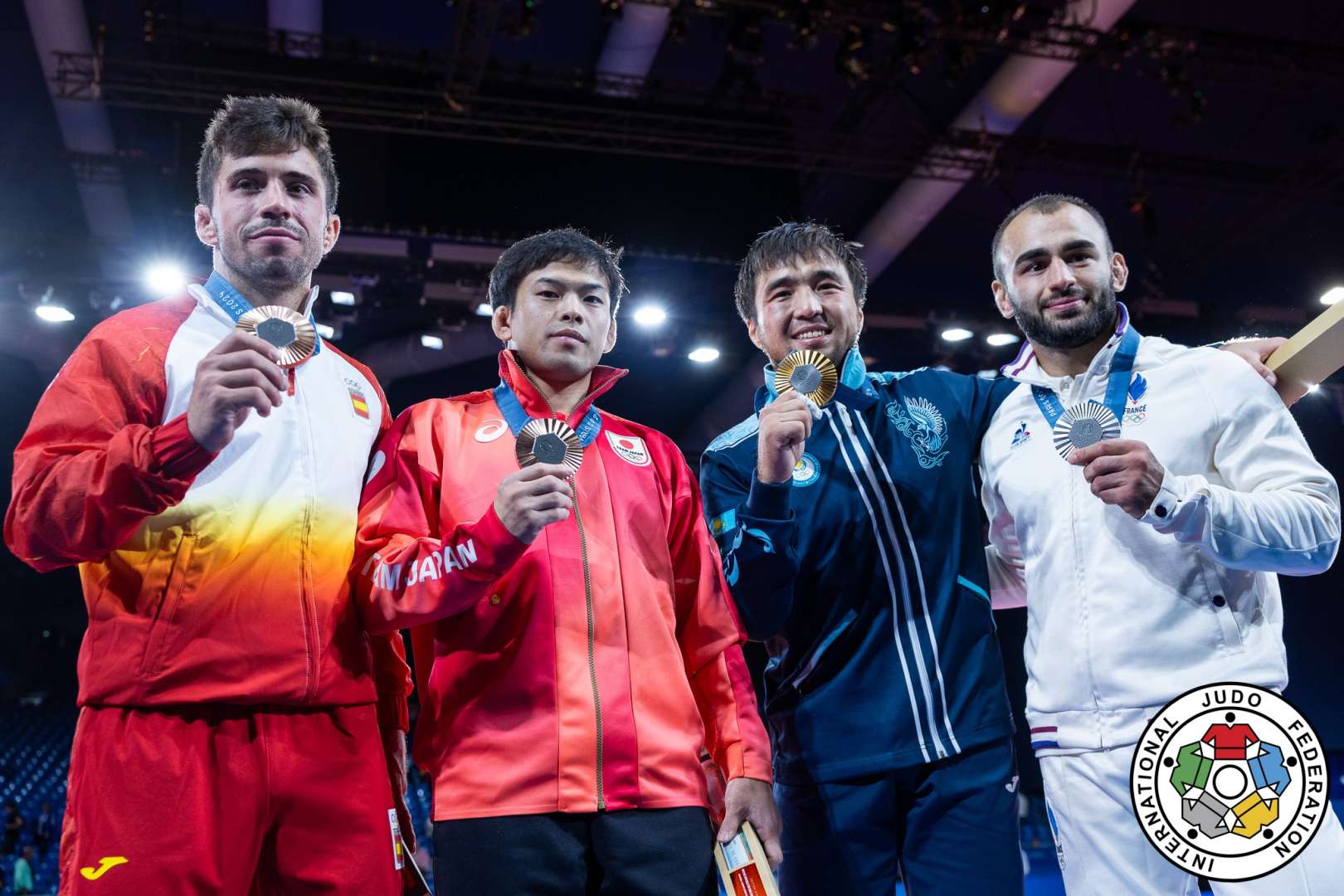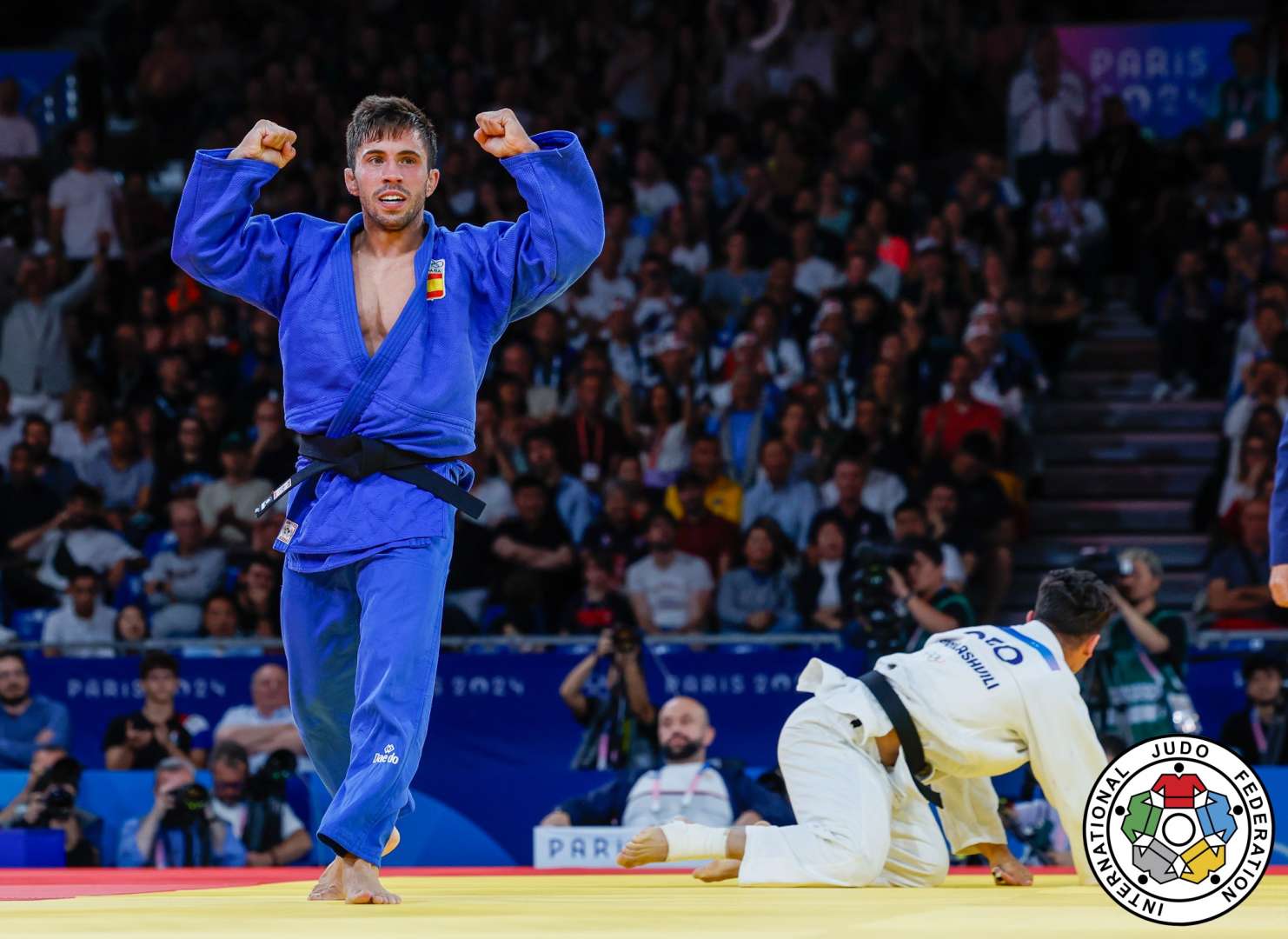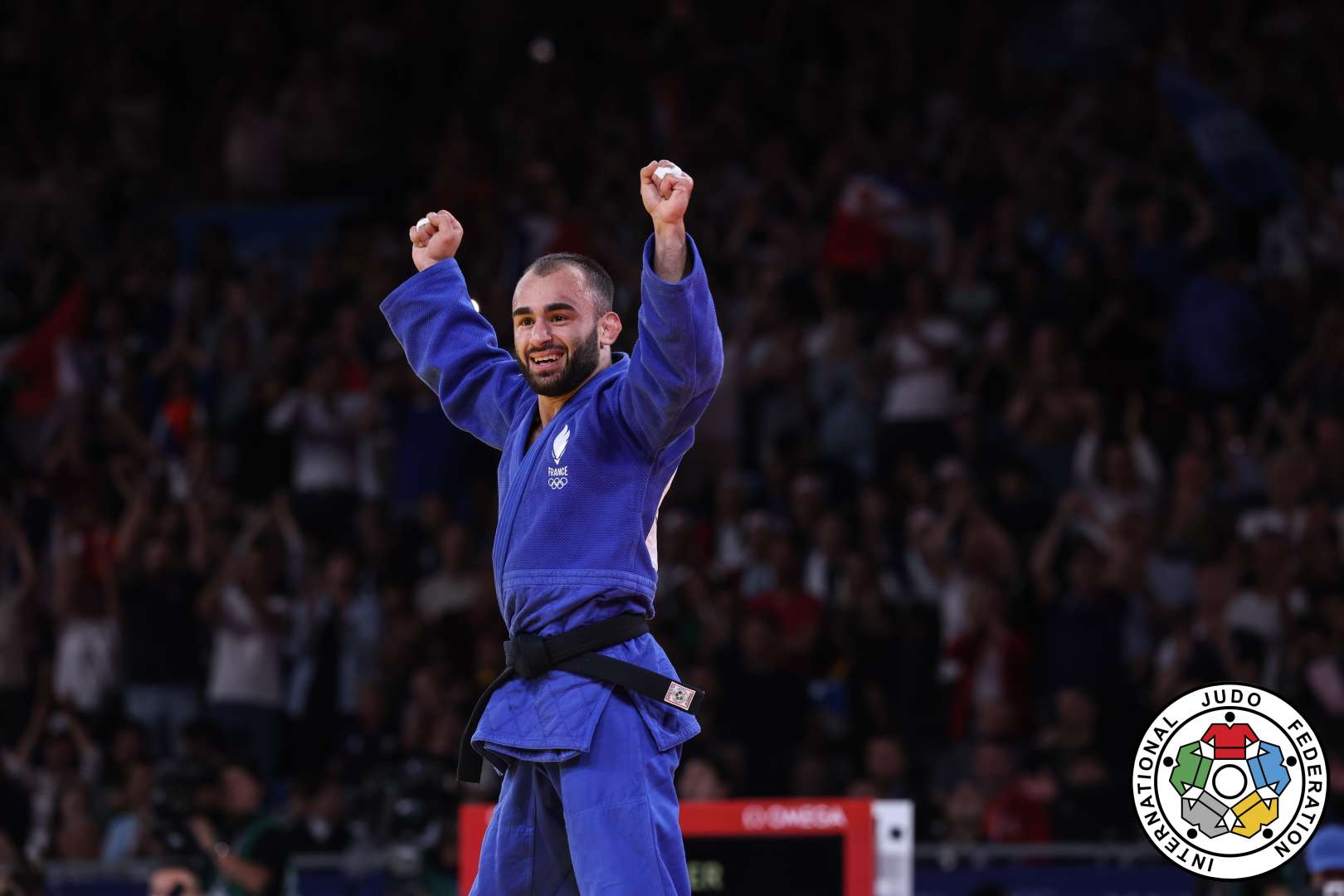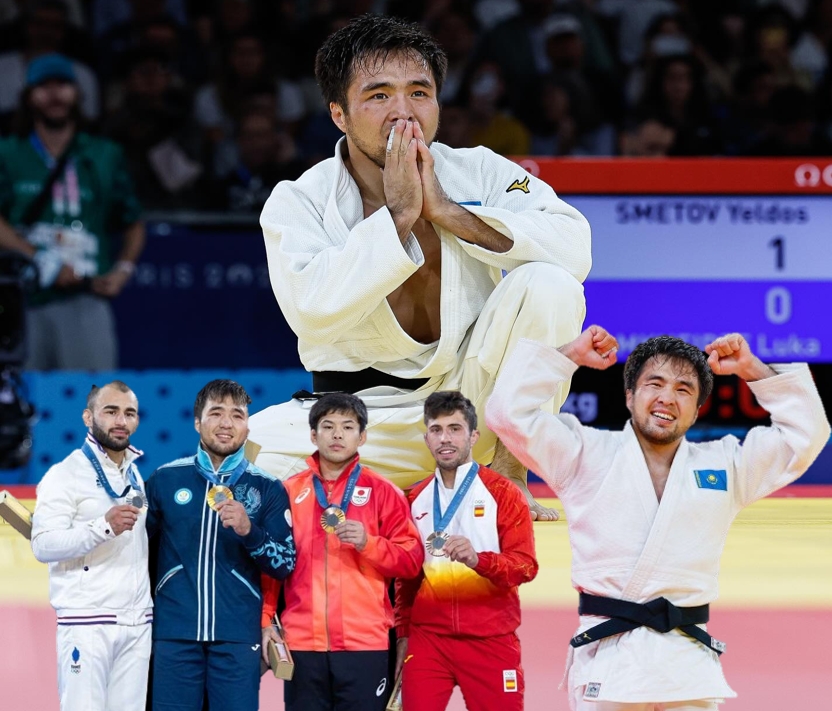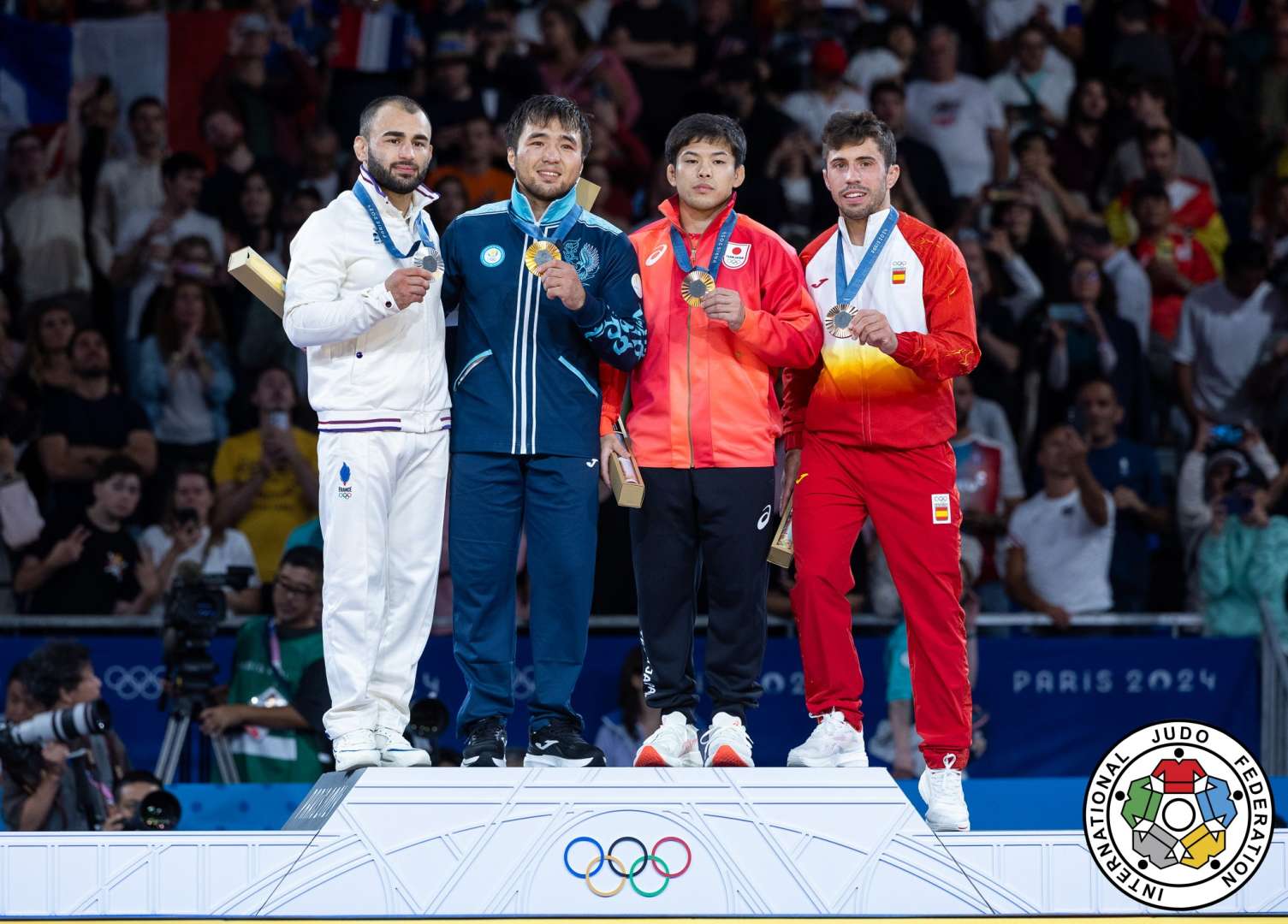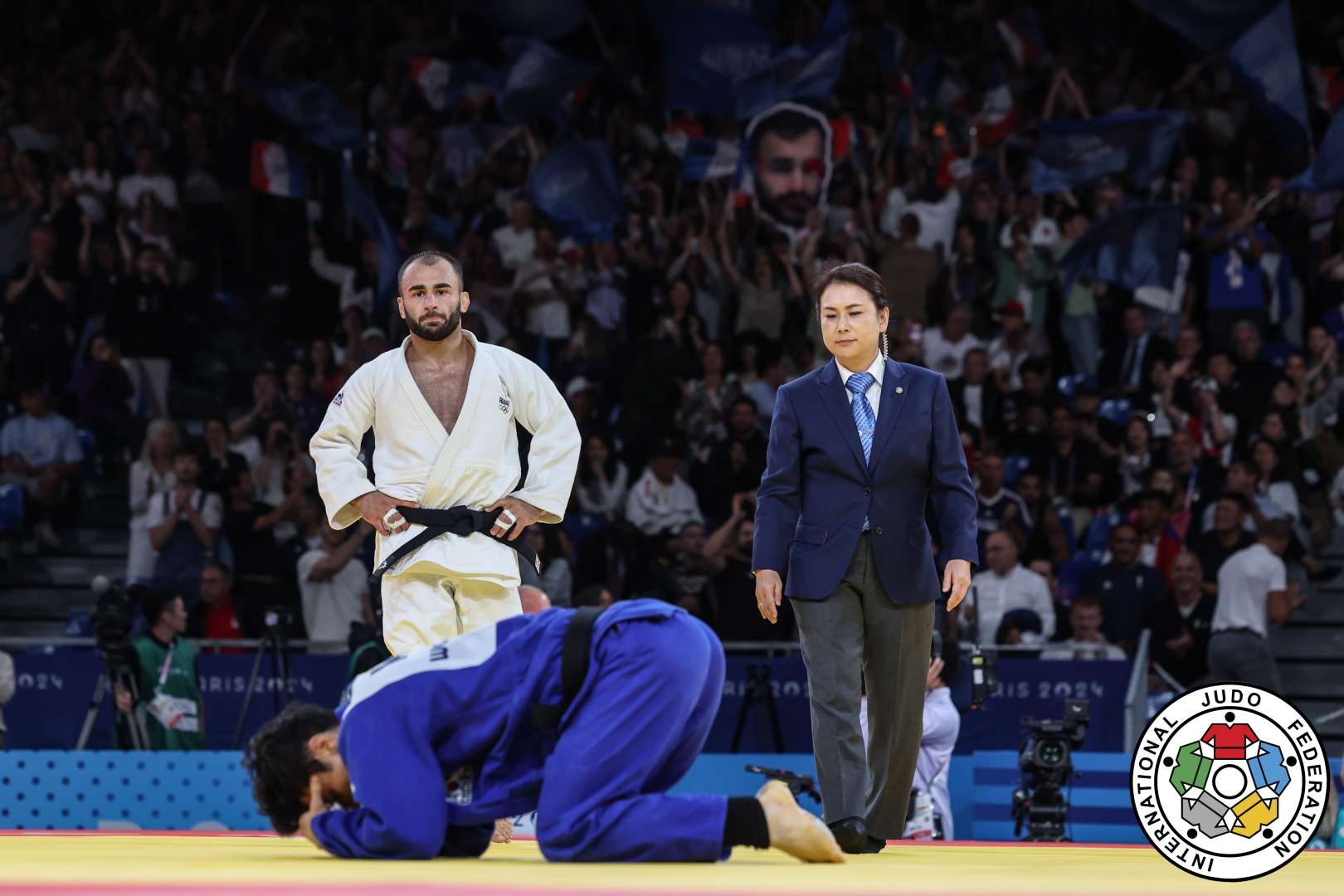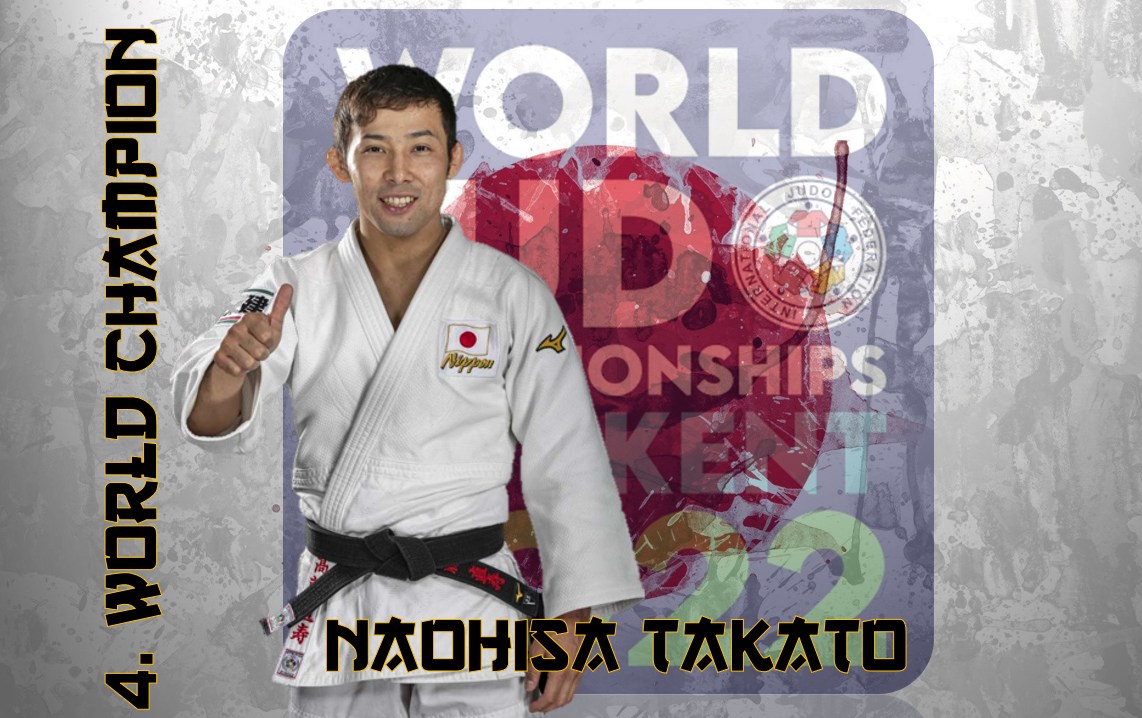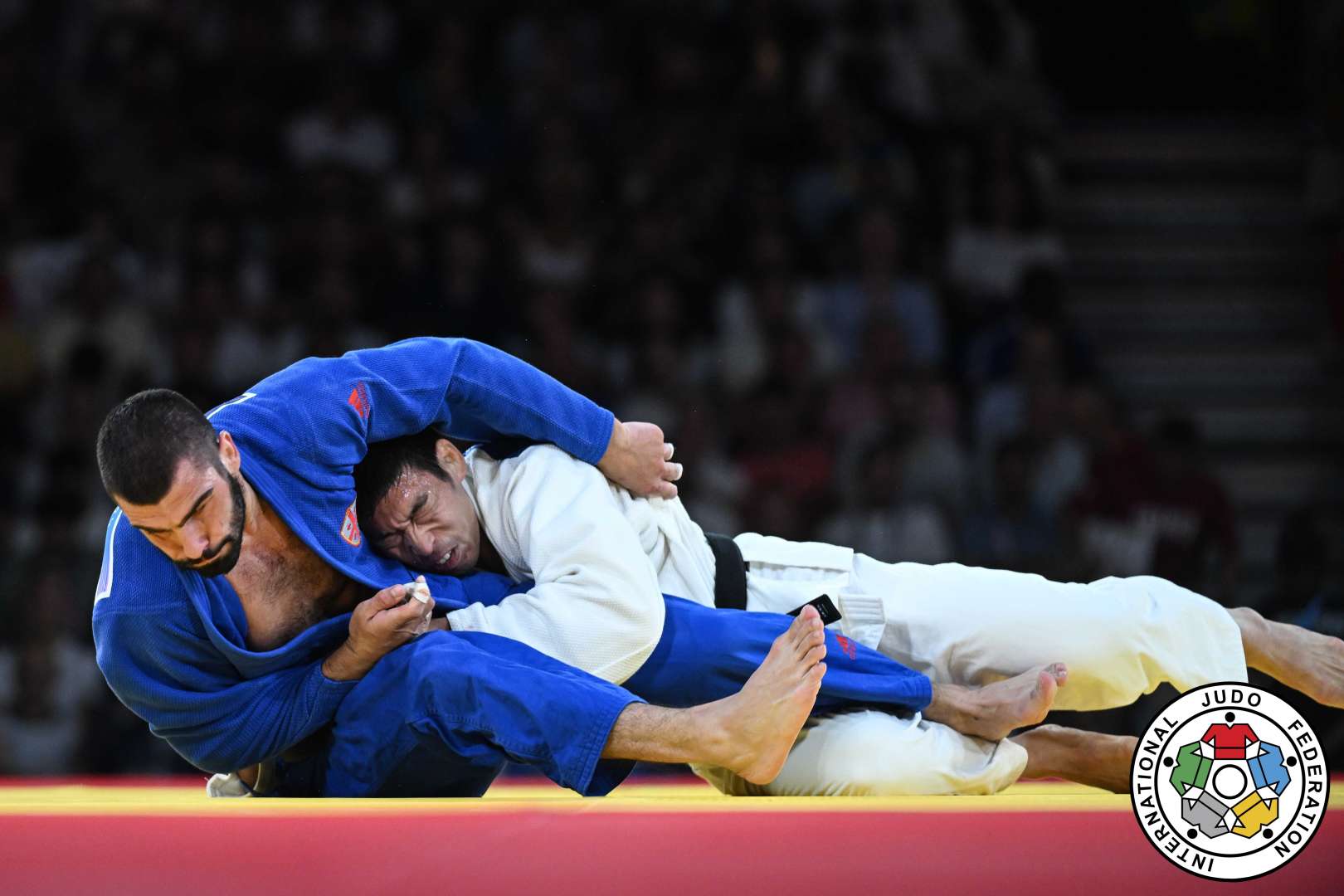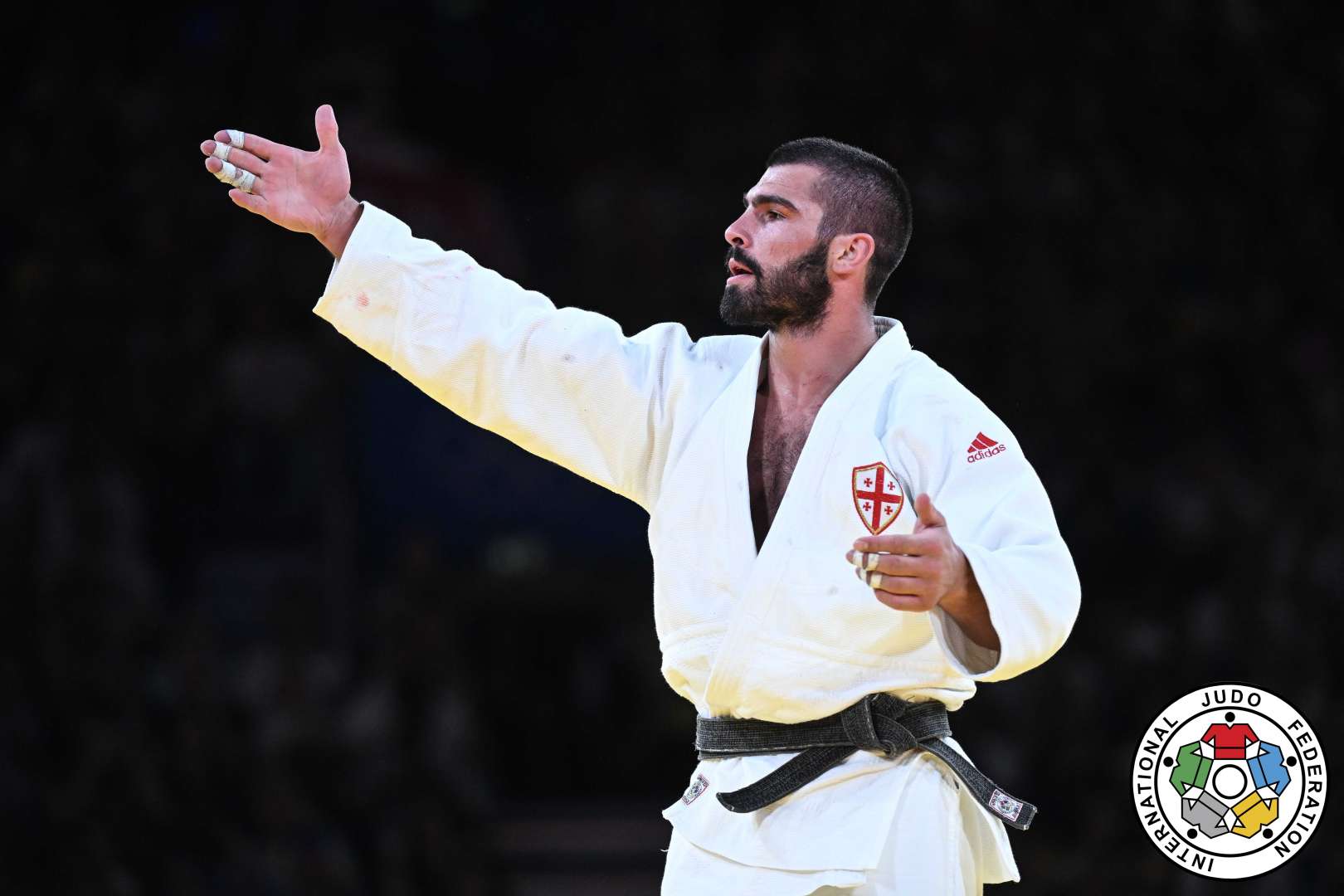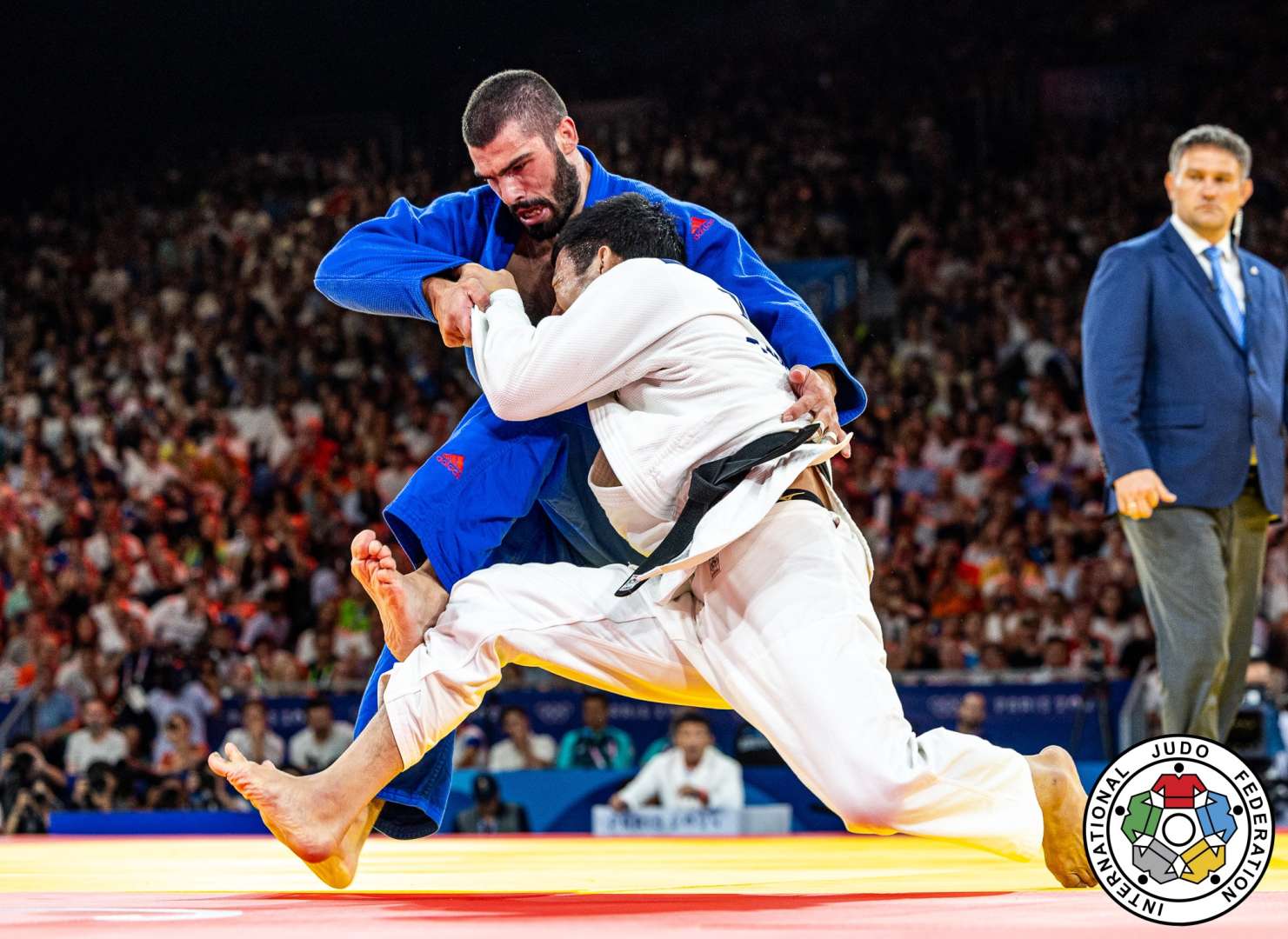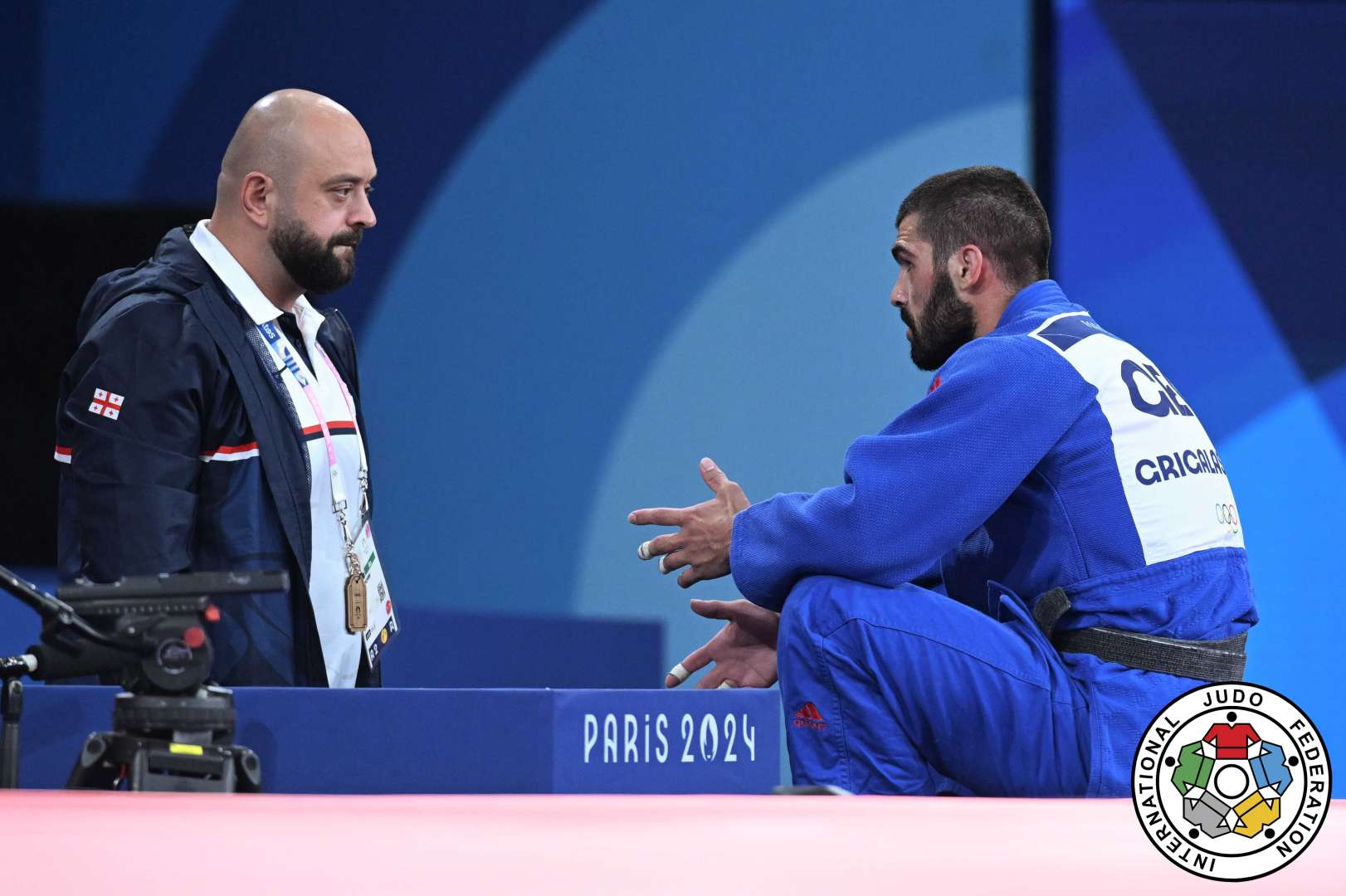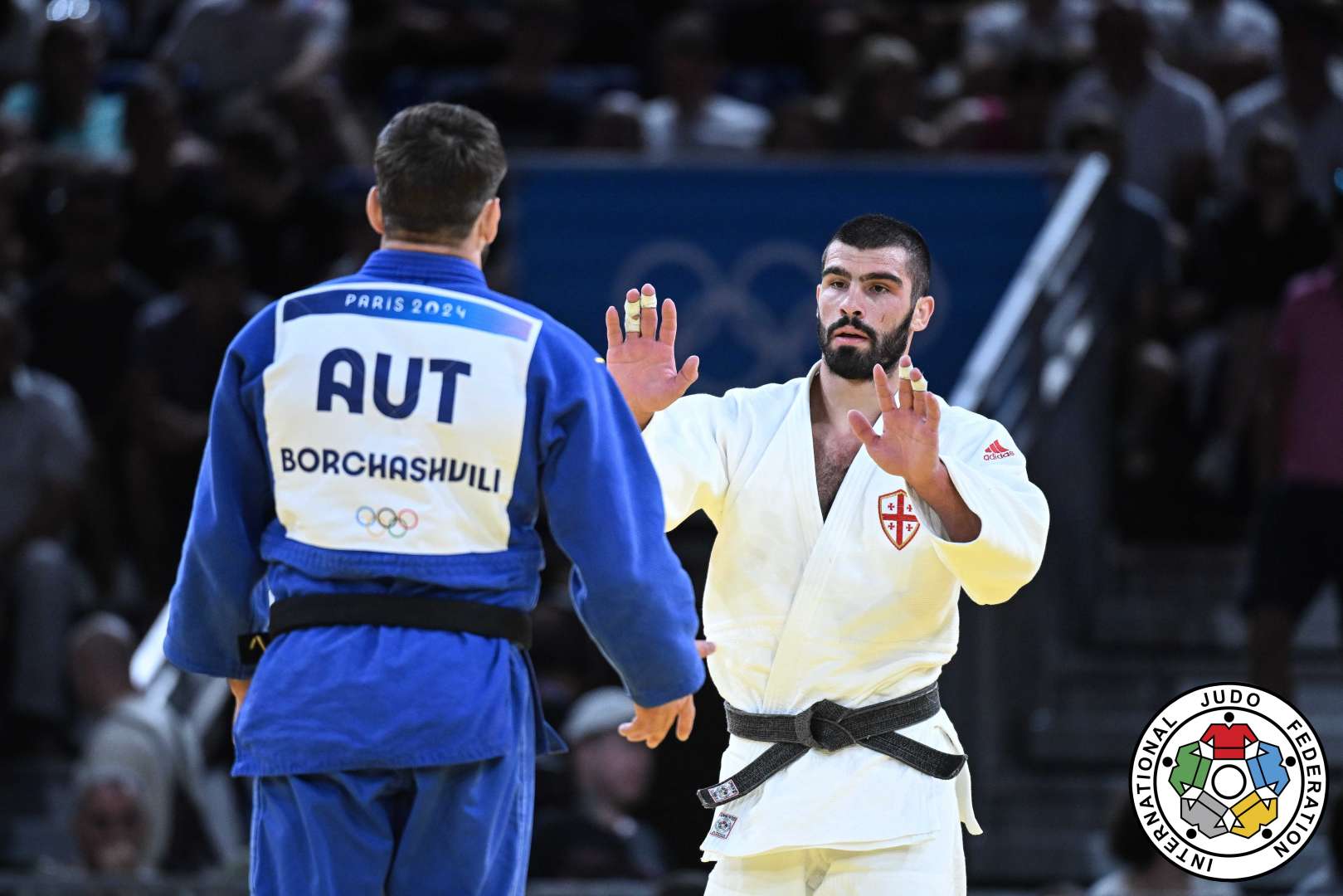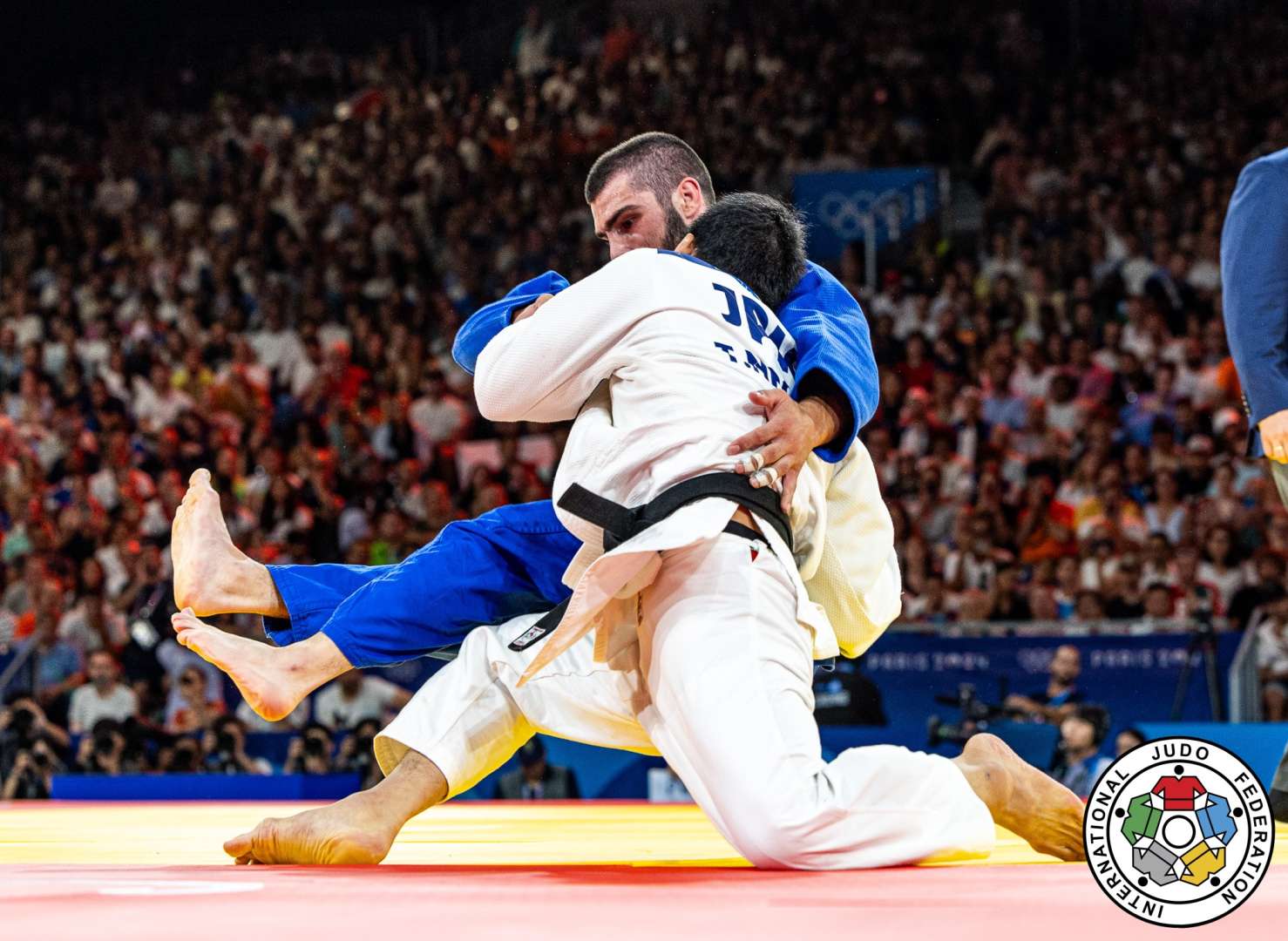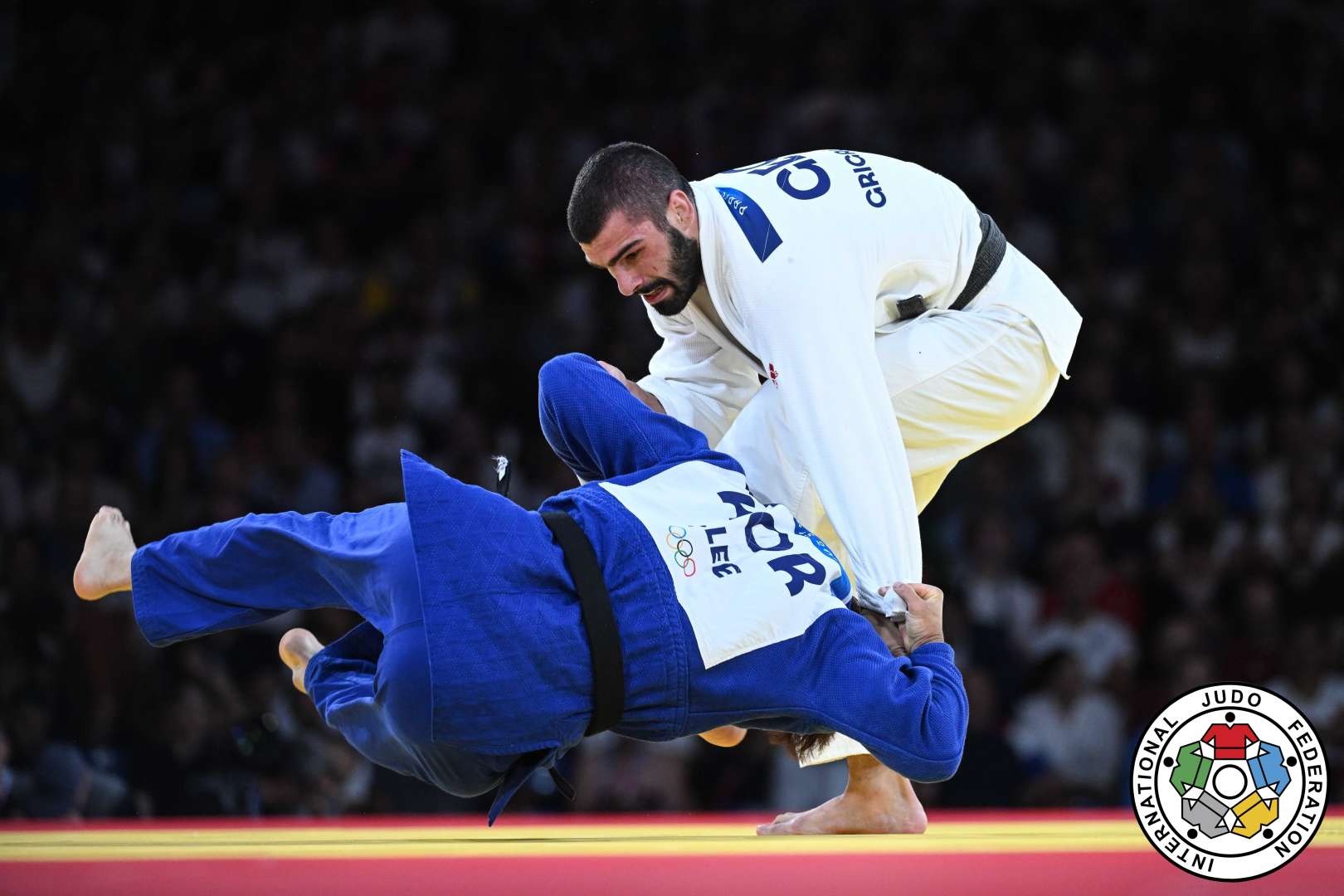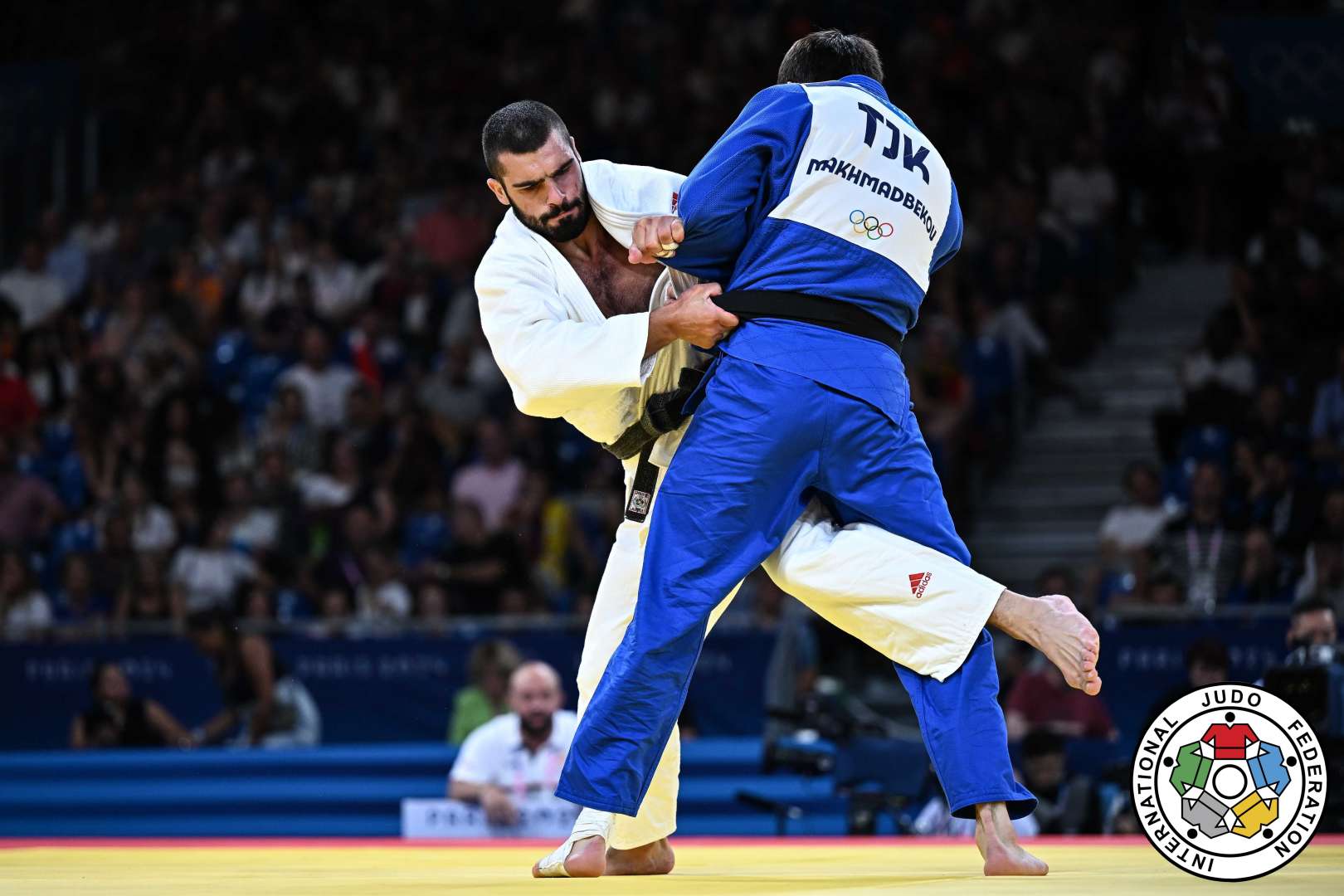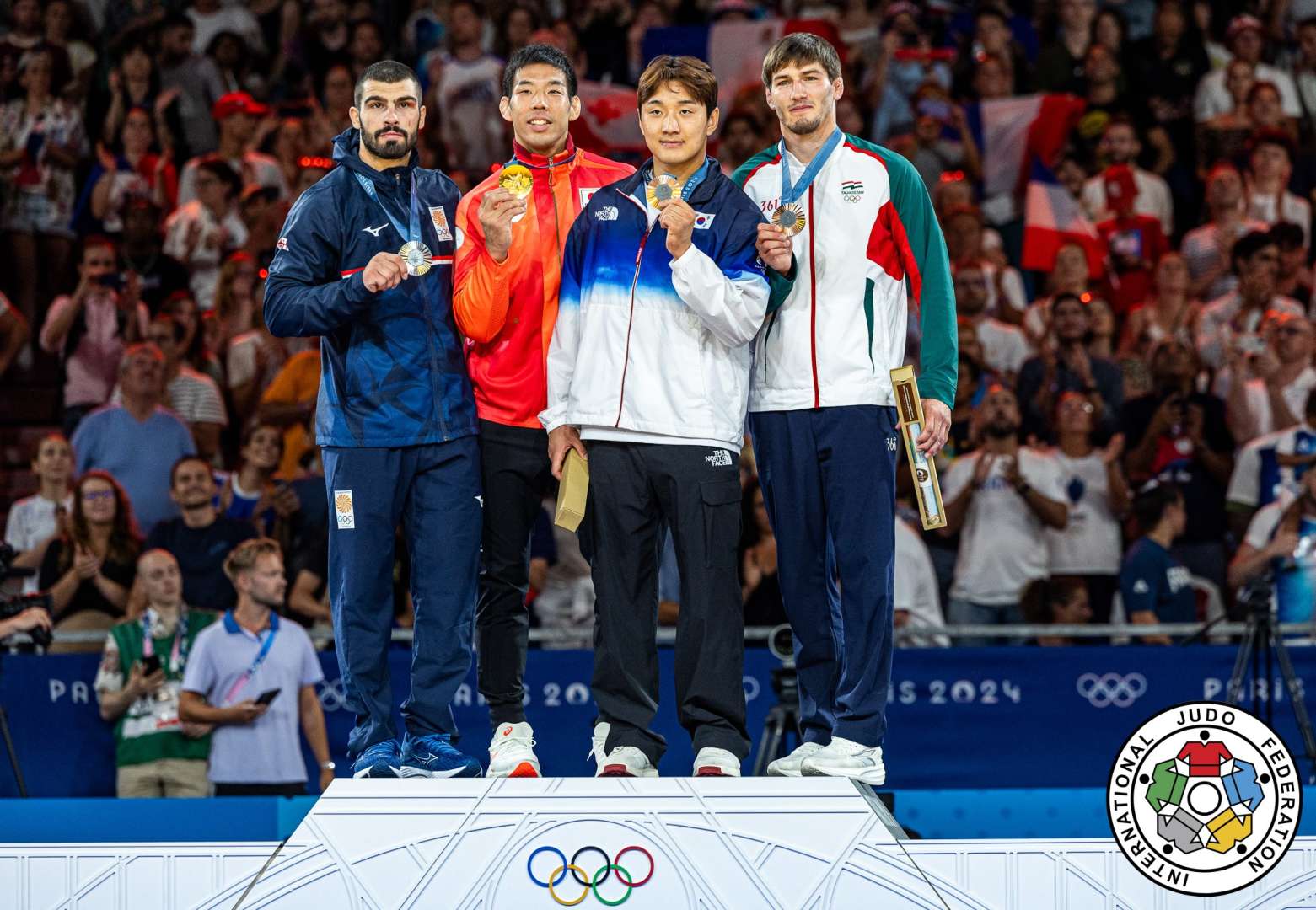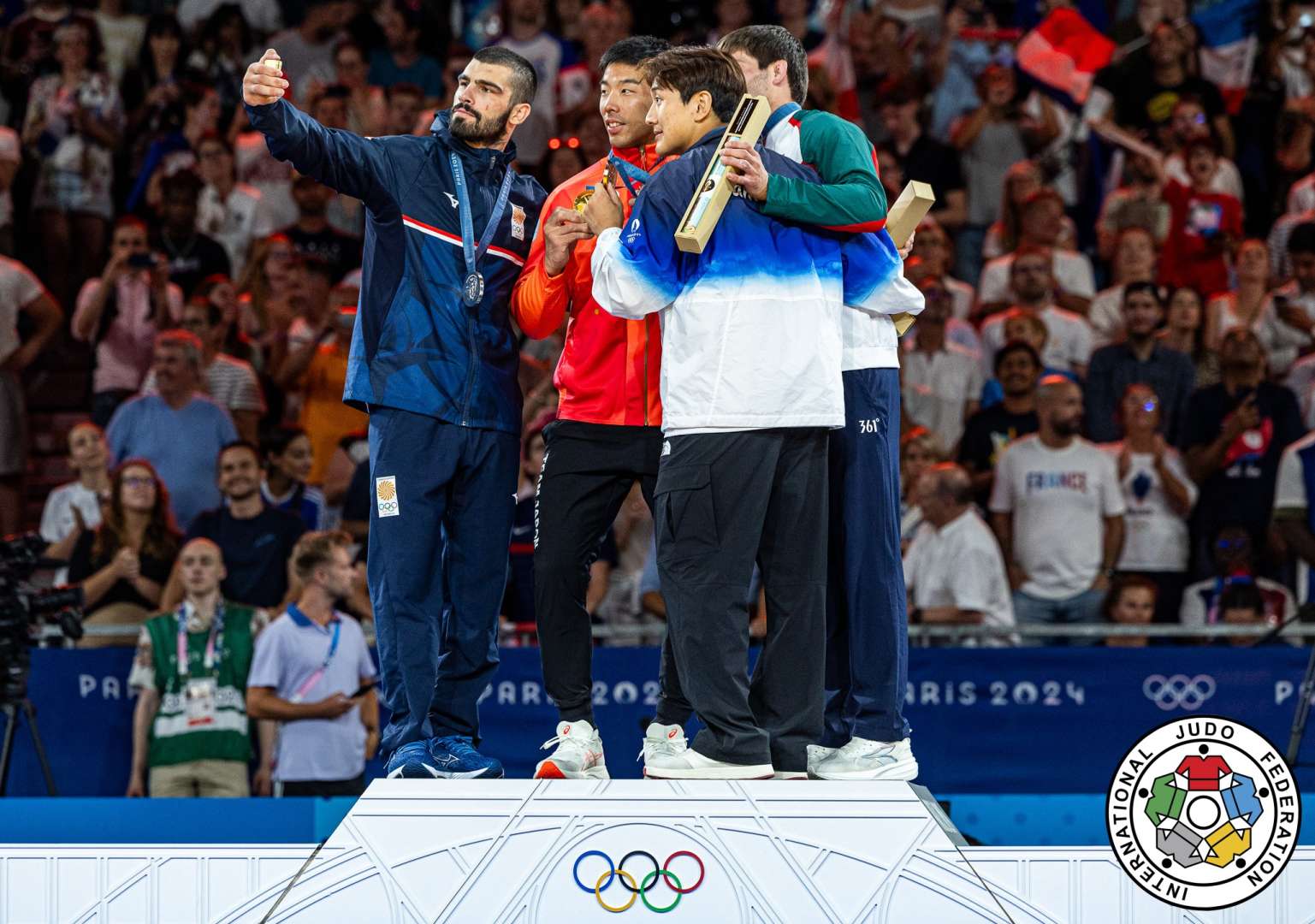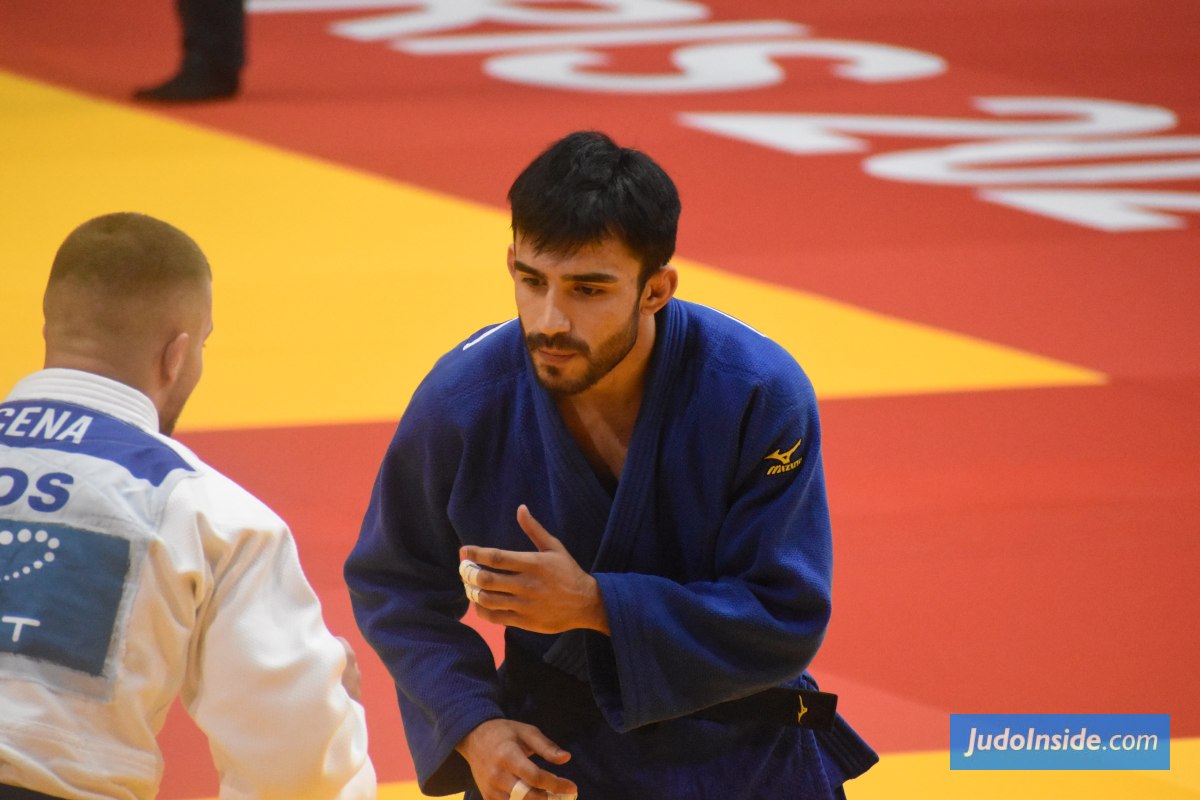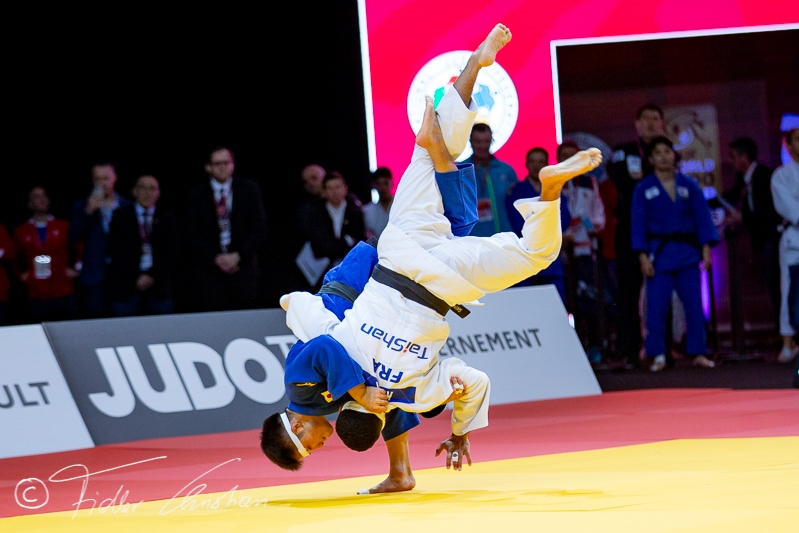Yeldos Smetov visualises gold medal succesfully and becomes golden legend
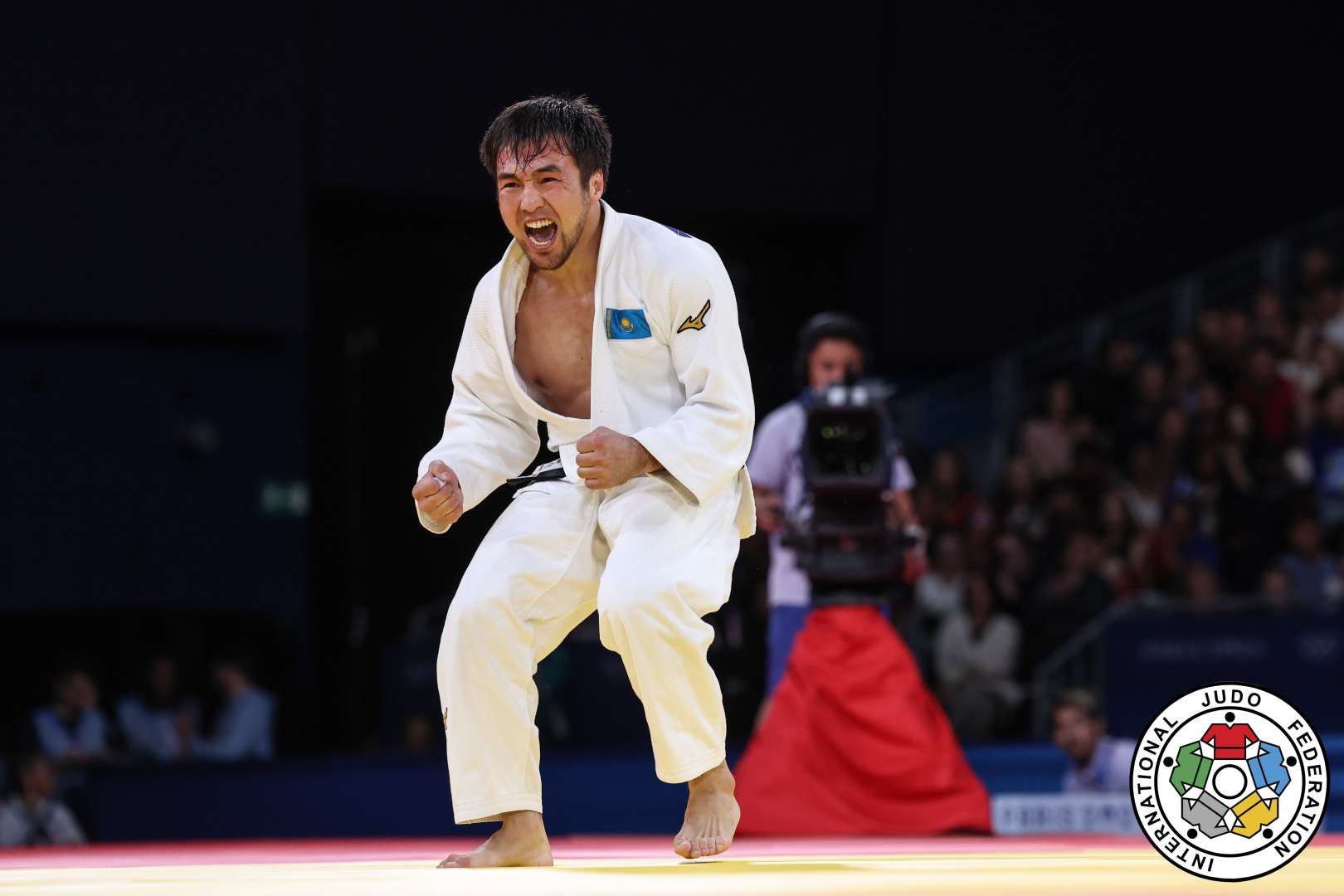
 27 Jul 2024 19:30
27 Jul 2024 19:30
 by JudoCrazy and JudoInside
by JudoCrazy and JudoInside
 IJF Emanuele Di Feliciantonio / International Judo Federation
IJF Emanuele Di Feliciantonio / International Judo Federation
Yeldos Smetov, the 31-year-old Kazakh judoka, made headlines by capturing the gold medal in the men’s U60kg category at the Olympic Games. This victory marked a significant milestone not only for Smetov but also for the entire Kazakh team, as it was their first gold medal after a drought at the Tokyo Olympic Games and the 15th in the nation's Olympic history since 1996.
Smetov's journey to gold is a testament to his perseverance and determination, especially after previously winning silver in Rio 2016 and bronze in 2021. He had expressed a desire to retire with an Olympic gold medal, a dream he visualized and ultimately achieved, cementing his status as a legend in the sport.
The path to his victory was marked by a series of intense and strategic matches. One notable bout was the reperchage match between Yang and Nagayama. Both judokas engaged in a tactical battle, with Nagayama eventually securing a waza-ari using a hybrid technique that started as osoto but transitioned into seoi-otoshi, securing his win.
Another highlight was Sardalashvili's impressive okuri-ashi-barai, which nearly scored an ippon but resulted in a waza-ari. Demonstrating quick thinking, Sardalashvili followed up with a hold-down to conclude the match victoriously.
The semifinal between Mkheidze and Yildiz was a tense, tactical encounter that extended into Golden Score. Both competitors had accumulated two shidos each, and it seemed destined to end by hansoku-make. However, Mkheidze managed to execute a side takedown, earning a waza-ari and a spot in the final.
Smetov's semifinal bout against Garrigos showcased his cleverness on the mat. Smetov secured his place in the final with a strangle technique from underneath, ironically defeating Garrigos, who had previously won against Nagayama using a similar technique.
In the bronze medal matches, Nagayama demonstrated his skill with his signature sleeve uchimata for waza-ari, followed by a side ura-nage for waza-ari-awasete-ippon. The other bronze medal match between Sardalashvili and Garrigos was unorthodox, with both judokas trading unusual grips. In Golden Score, Garrigos, trailing by two shidos to Sardalashvili's one, executed a tomoe-nage at the edge of the mat, scoring waza-ari and clinching the bronze.
In the final, Mkheidze's tactical approach initially put pressure on Smetov, leading to Smetov receiving two shidos. However, with time running out, Smetov countered one of Mkheidze's sacrifice attacks, lifting him and smashing him down for a waza-ari score. Smetov then skillfully managed the remaining time to secure his victory.
At 31, Smetov’s triumph places him among the top 10 oldest winners of an Olympic gold medal in judo. This victory allows him to retire with the ultimate accolade, solidifying his legacy in the sport.
 like
like
 share
share
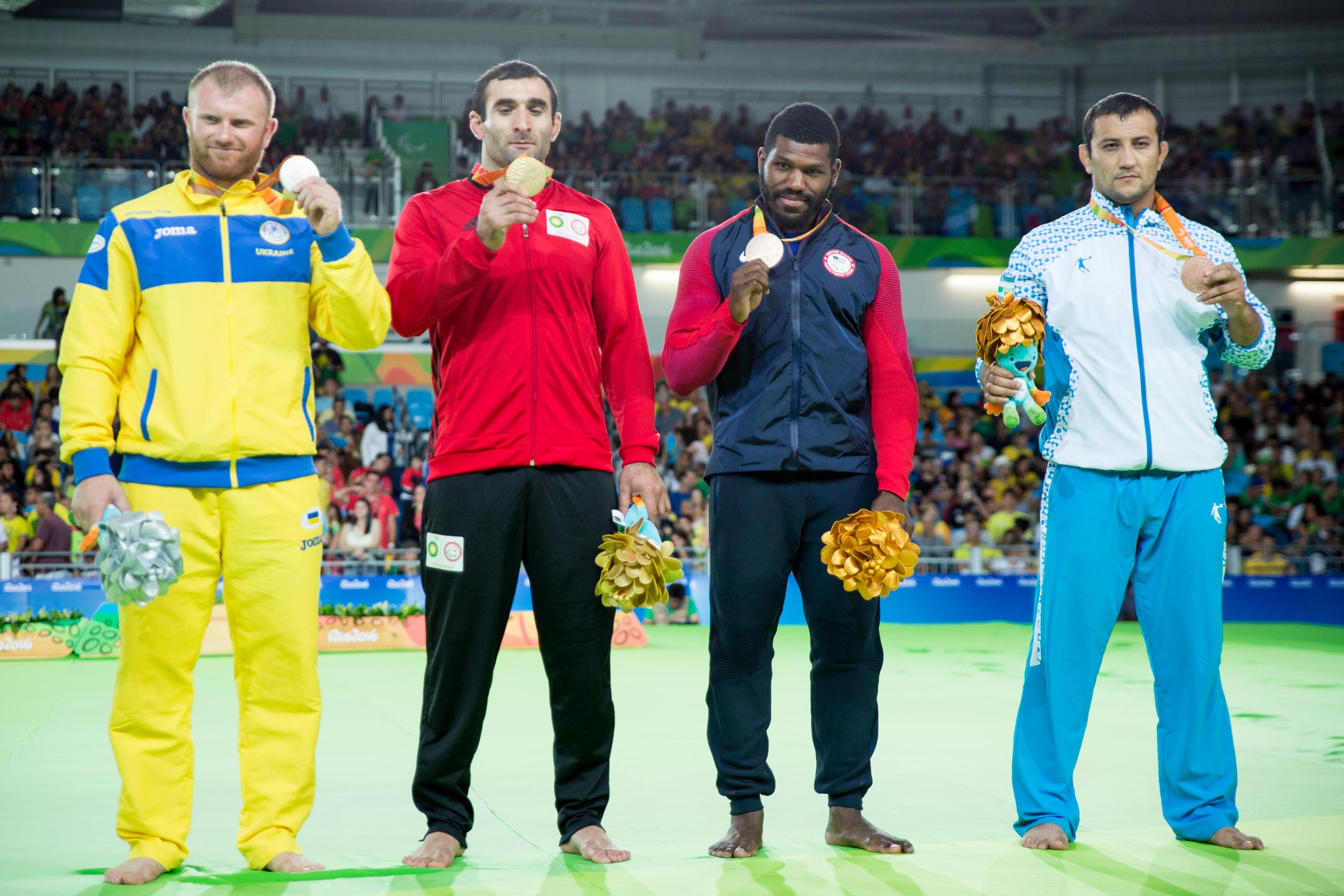
| Result | City | Date |
|---|---|---|
| 2 | Paris | 2024 |
| 1 | Abu Dhabi | 2024 |
| 1 | Zagreb | 2024 |
| 3 | Belgrade | 2023 |
| 2 | Montpellier | 2023 |
